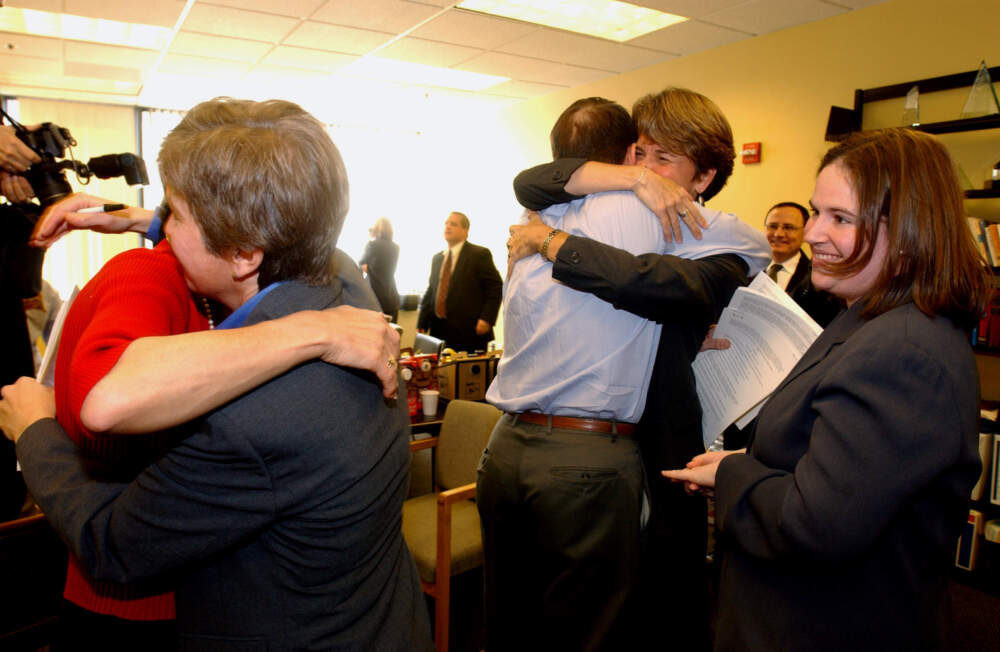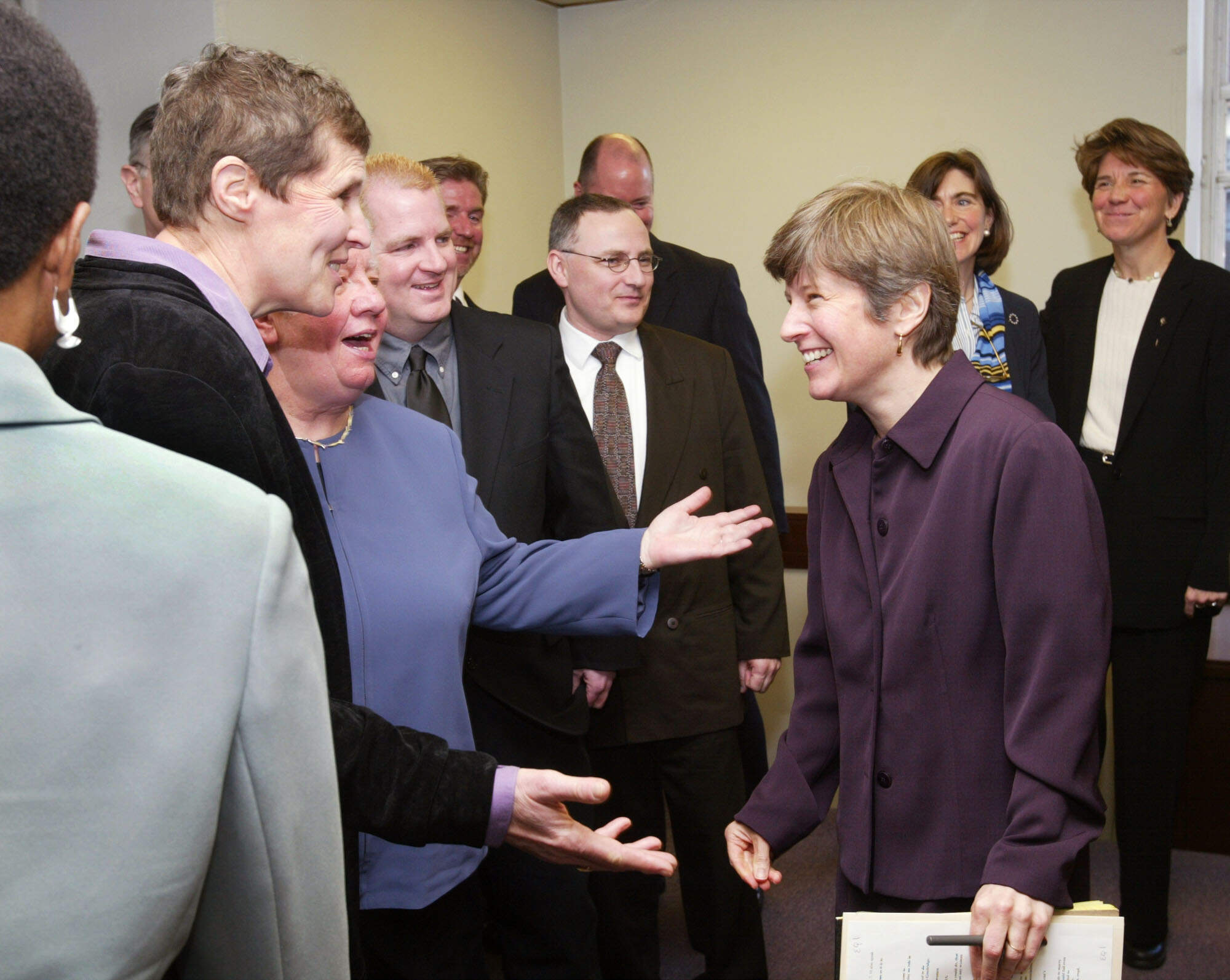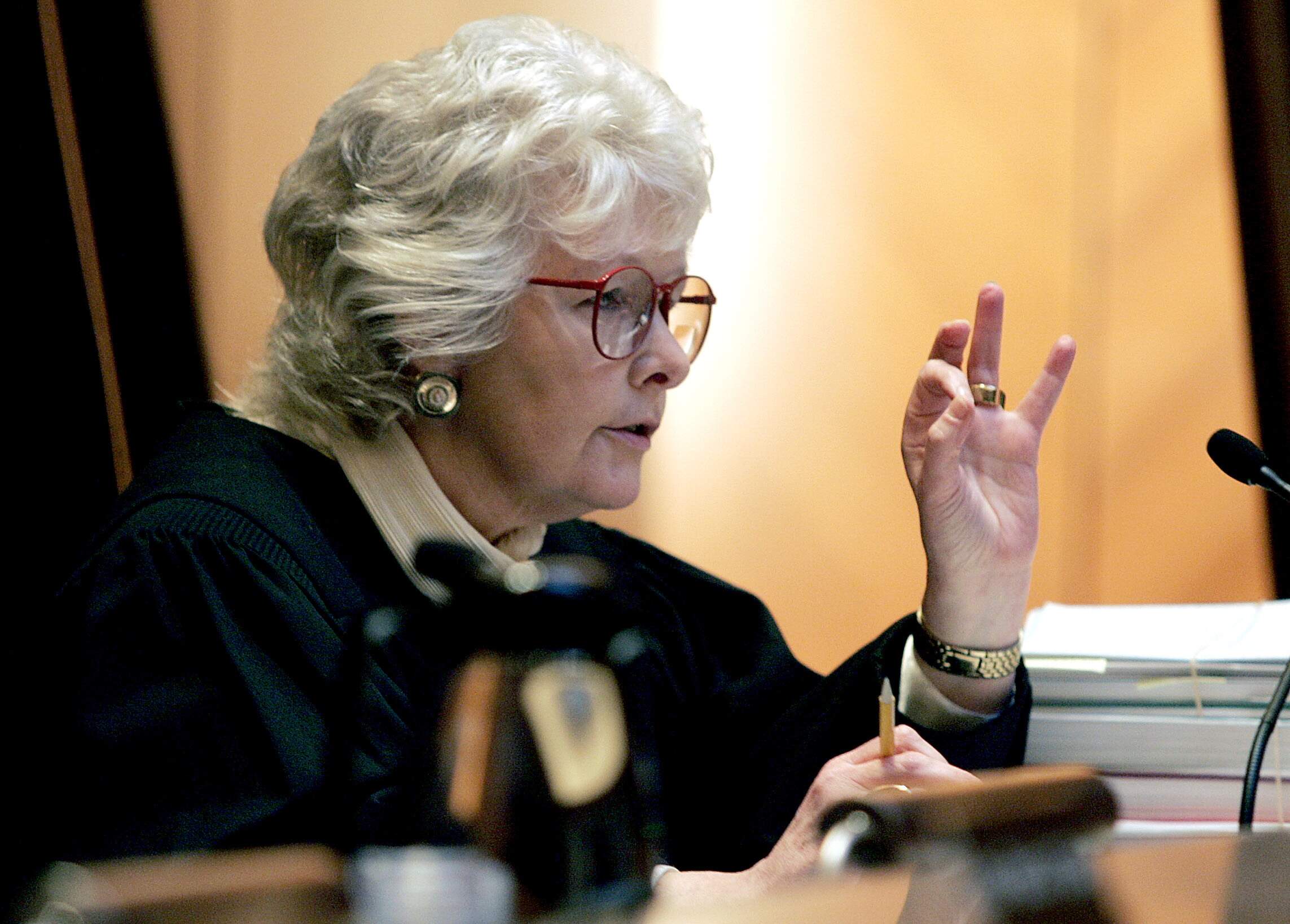Advertisement
Field Guide to Boston
Reflecting on 20 years of marriage equality in Massachusetts
Resume
On the 20th anniversary of the Goodridge decision, we talk with Hillary Goodridge, one of the lead plaintiffs in the court case that created marriage equality in Massachusetts, as well as Margaret Marshall, the former Massachusetts Supreme Judicial Court chief justice who wrote the opinion in the Goodridge case.
Three Massachusetts LGBT leaders also join us: Alejandra St. Guillen, who ran for Boston City Council as an out gay woman in 2019, and Arline Isaacson and Gary Daffin, who were both co-chairs of the Massachusetts Gay and Lesbian Political caucus at the time of the court battle.
In the first segment of the show, Goodridge discusses how she her ex-wife Julie, became the Goodridges and their experiences at the time.
Margaret Marshall speaks to Radio Boston in the second segment of the show and discusses her opinion she wrote for the Goodridge case 20 years after the fact. Here are some major interview moments:
Interview Highlights
On the passing of 20 years since the Marshall wrote the opinion:
"It feels in some ways as if it were yesterday and in many ways as if it were a century ago. There are moments that I can remember waiting to see what the public reaction would be as one does in so many cases and even before that."
"So many people ask me, 'Are you surprised at how quickly it moved?' That is to say, the time between 2003 of the Goodridge decision and 2015 of the United States Supreme Court reaching the same decision for our entire nation."
"And I like to remind people that even in 2003, the first claim for marriage equality — which was filed in court — had been summarily dismissed by the United States Supreme Court. So, for the people who were united in their love before 2003 — some of whom had been waiting for at least 50 years — it depends on one's perspective: it moves quickly or it moves slowly. And somehow those two come in and out of focus almost at the same time."

On how it felt for Marshall's decision to resonate all the way back to her home country of South Africa:
"I think it didn't have quite the depth of meaning as it did to have the United States president targeting — what was President Bush — a few judges (who) have decided to upset centuries of how societies have organized themselves. I mean, that was, to me, far more surprising."
"I grew up in a very tiny village in South Africa, and I think if you had spoken to the nuns who first started educating me at the age of four, they would have been quite surprised to find that the President of the United States was pointing a finger at me as some judge who's upset the whole course of human history."
On political implications of the opinion and if they matter:
"In our constitutional system, I don't think it should matter. One doesn't look one shoulder to hold up your finger to see which way the wind is blowing. After the decision came out, some Democratic Party friends said, 'Why didn't you hold the decision until after the presidential election of that year?' If one stops to think about that, that is a terrible question. This was not a Democratic Party or Republican Party issue. This was a matter of the Massachusetts Constitution, which is a great constitution and starts with the words, 'All people are born free and equal.'"

On Marshall's role as a judge:
"What one does as a judge is look at what the claims are. One also looks very carefully at what relief is being sought. What made Goodridge different was that there had been cases — for example, in Vermont — where the claim was for civil unions. And although the Vermont legislature provided for civil unions with very courageous legislators in that sense, it actually didn't work very well. It was difficult in all kinds of settings: school settings, hospital settings, estate settings, federal tax laws — civil unions didn't work.
And so the plaintiffs in Goodridge — and it is the plaintiffs, I believe, who were the most courageous, they had the most to lose, the seven couples who decided to to take the risk of asking a court to allow them to marry — they were very clear that they wanted marriage, not civil unions. And so I think there was a clarity in the case that was brought in the Supreme Judicial Court in Massachusetts. And one looks only at those claims. One does not look to see what one newspaper or another newspaper, one television, another television, one radio station, another radio station are saying. That's irrelevant to a judge."
This segment aired on November 17, 2023.

